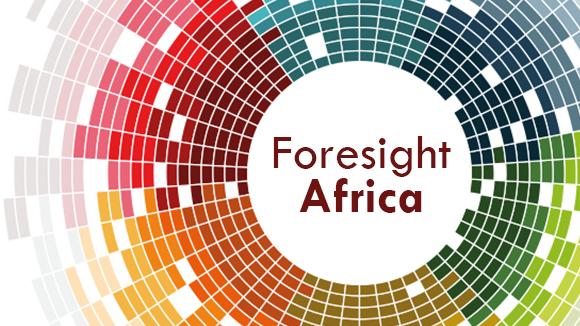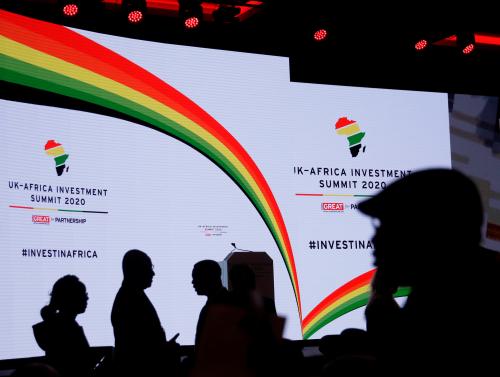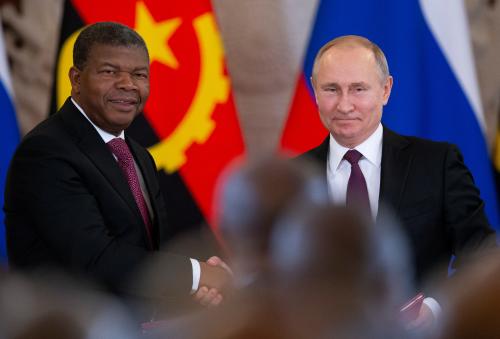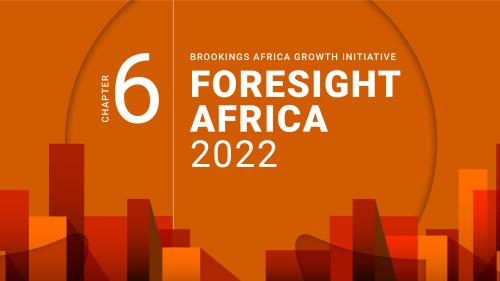Below is a viewpoint from the Foresight Africa 2022 report, which explores top priorities for the region in the coming year. Read the full chapter on Africa’s external relations.
 Over the past two decades, the engagement of the Gulf Cooperation Council (GCC) countries with Africa has been shaped largely by a narrow set of economic and security interests among Gulf states rather than a long-term commitment to deep cooperation with Africa. In the wake of the COVID-19 pandemic, however, there are signs of a shift in relations that signal a broadening of mutual diplomatic and economic ties and emerging partnerships that will benefit both the Gulf and sub-Saharan Africa going forward. This shift is driven by the pandemic recession and a new geopolitical environment facing the GCC.
Over the past two decades, the engagement of the Gulf Cooperation Council (GCC) countries with Africa has been shaped largely by a narrow set of economic and security interests among Gulf states rather than a long-term commitment to deep cooperation with Africa. In the wake of the COVID-19 pandemic, however, there are signs of a shift in relations that signal a broadening of mutual diplomatic and economic ties and emerging partnerships that will benefit both the Gulf and sub-Saharan Africa going forward. This shift is driven by the pandemic recession and a new geopolitical environment facing the GCC.
The Gulf countries have been particularly impacted by the prolonged nature of the COVID-19 pandemic, which drove oil prices to historic lows and exposed their vulnerability to disruptions in global supply chains and overdependence on food imports. As a result, economic diversification and food security have emerged as GCC policy priorities that could serve as levers for deepening economic relations with Africa. Increased cooperation in agriculture and agribusiness, for example, would address food security concerns in the Gulf while raising agricultural productivity and building value chains in Africa along the lines of product development, packaging, and light manufacturing.
While military cooperation may well continue, the interests of Gulf states in Africa will increasingly focus on economic promotion and investment that expands markets and enables longer-term diversification.
Similarly, as the Gulf countries expand their investments in African transport and logistics infrastructure to leverage their strengths at home and existing assets in Africa, they will bolster trade flows between both regions while integrating Africa more deeply into global supply chains through Gulf hubs. In keeping with past trends, these strategic investments will coincide with an expansion of private investment from the Gulf in a broader range of African industries and economic activities, including construction, telecoms, and financial services. The recent uptick in international oil prices is expected to restore the investment appetite of both Gulf sovereign wealth funds and private corporations.
The prospects for deeper economic relations between the Gulf and Africa are further enhanced by the ongoing shift in regional geopolitics. Rivalries among the Gulf states over the past decade, especially the United Arab Emirates and Qatar, have underpinned growing military assistance and security alliances in the Horn of Africa. These interventions have been tied to a wider competition between regional powers in the aftermath of the Arab Spring revolutions. Geopolitical stalemates, pandemic recession, and the U.S. pivot to the Indo-Pacific have pushed the Gulf countries to deprioritize their security posture abroad. While military cooperation may well continue, the interests of Gulf states in Africa will increasingly focus on economic promotion and investment that expands markets and enables longer-term diversification.
The Brookings Institution is committed to quality, independence, and impact.
We are supported by a diverse array of funders. In line with our values and policies, each Brookings publication represents the sole views of its author(s).









Commentary
Deepening Gulf engagement with sub-Saharan Africa
February 22, 2022